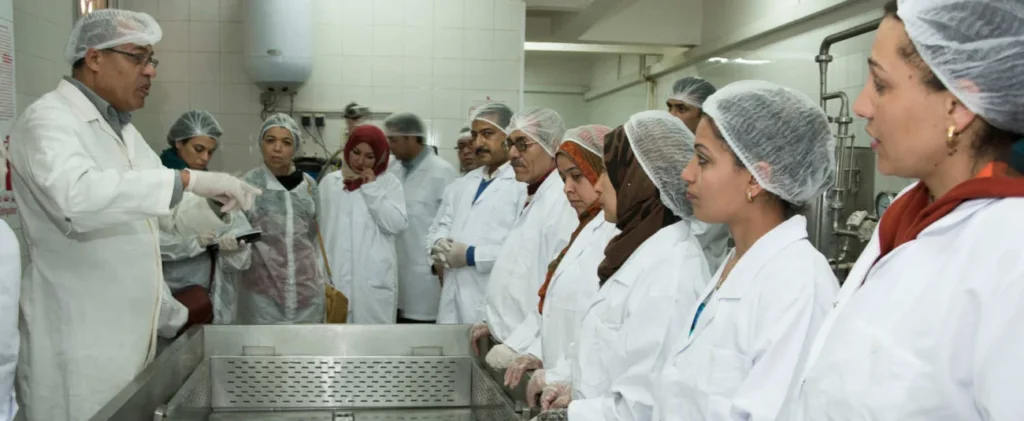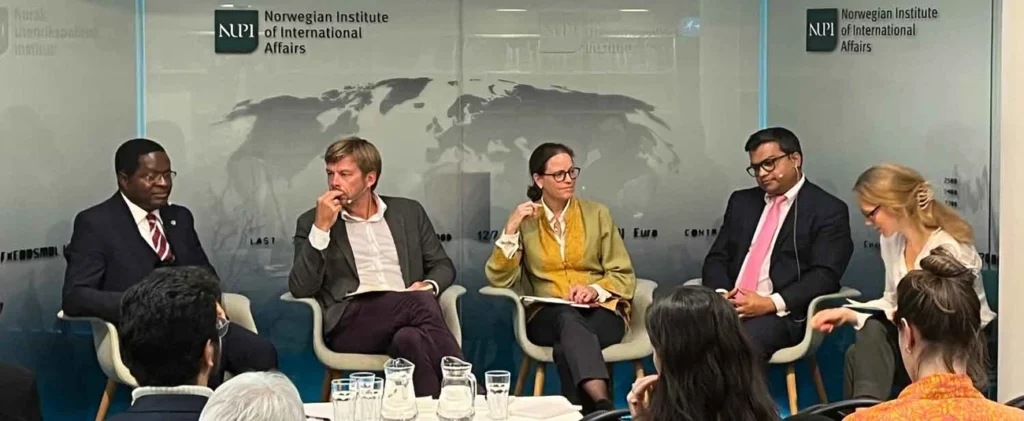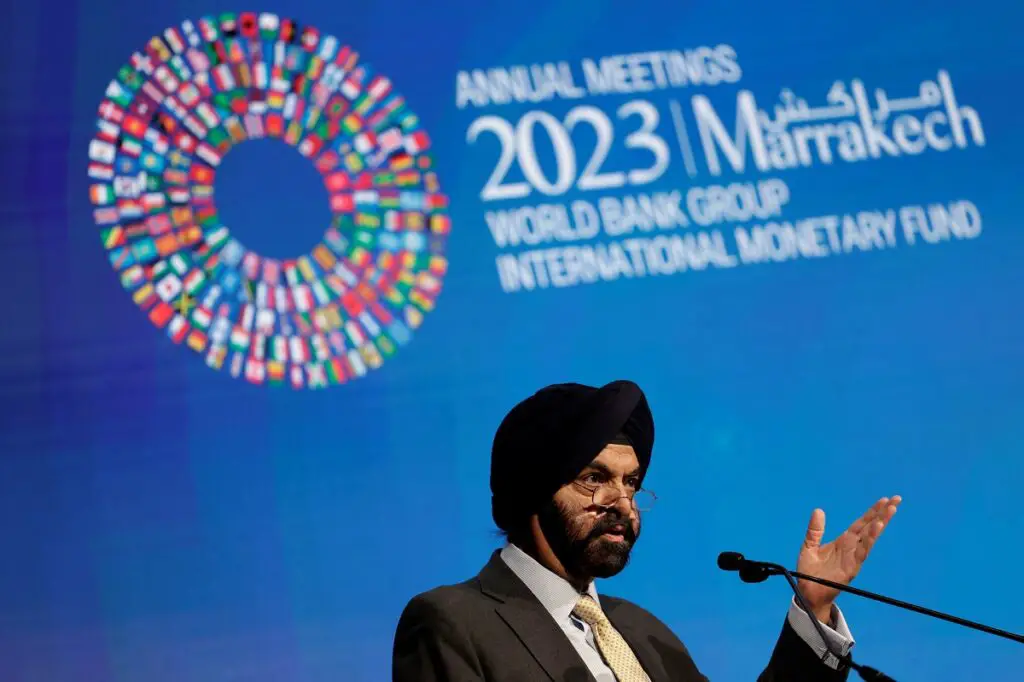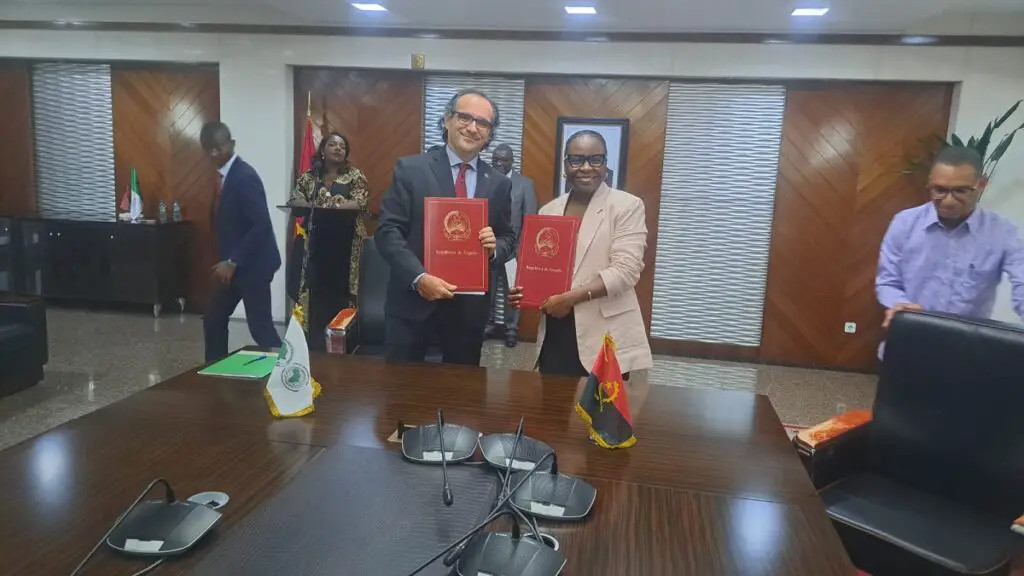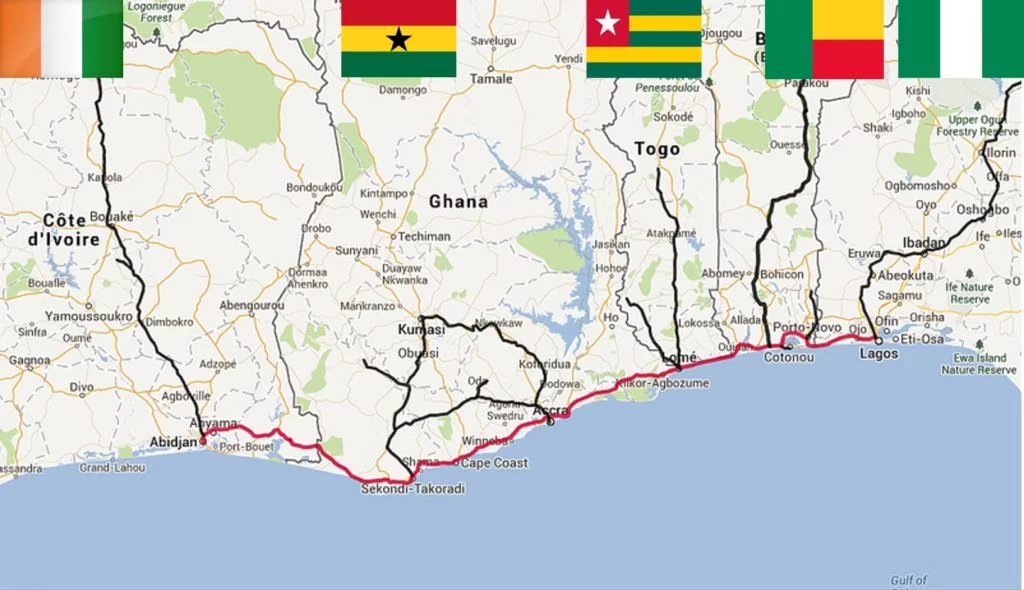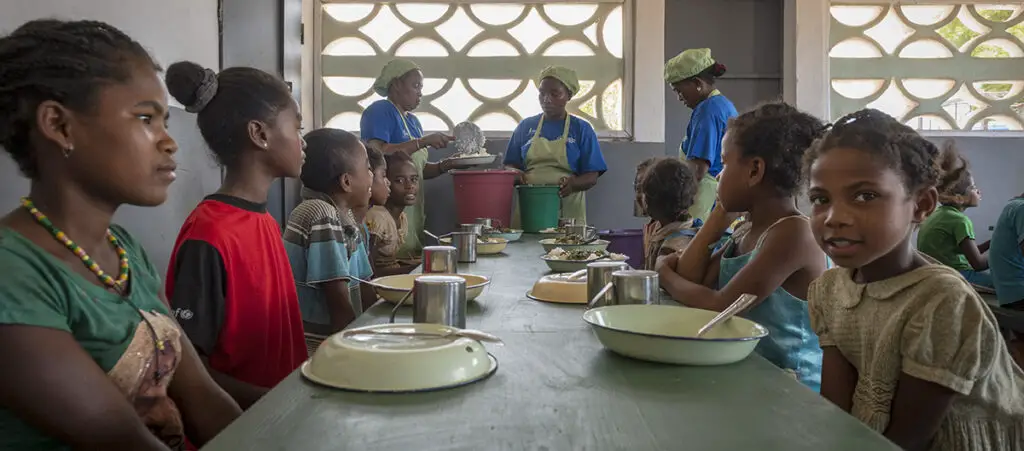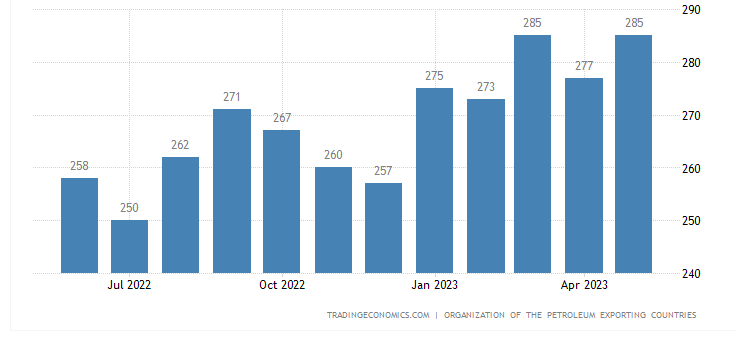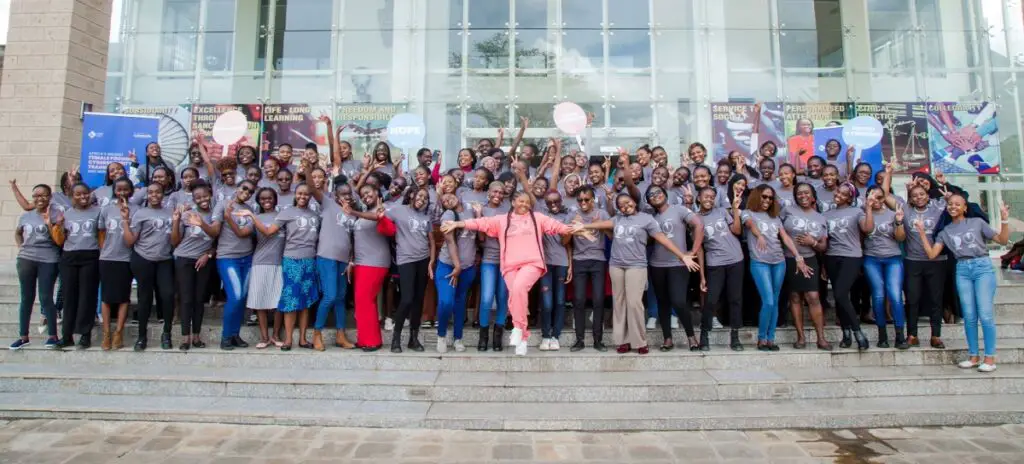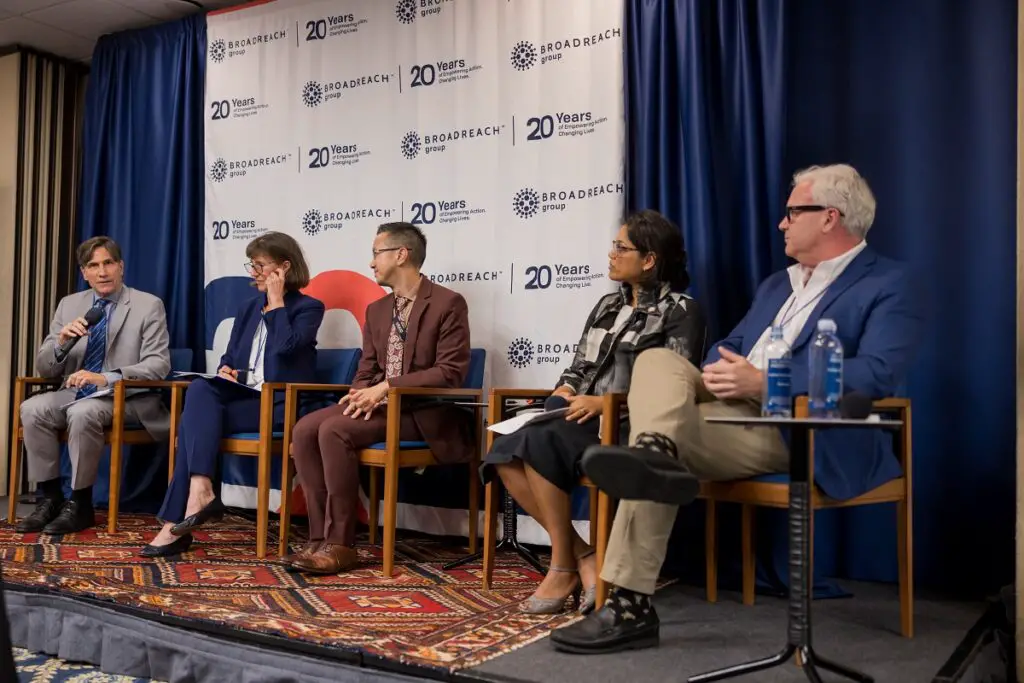- Africa’s new dawn: the rising role of digital and AI in agriculture
- Can Dangote Refinery Transform Africa Energy Ambition
- Gallup Survey: 80 per cent of Kenyan Workers Are Disengaged and Seek New Opportunities
- Madagascar Man Freed from 5KG Tumor After 15-Year Struggle
- How women in Africa are perceived and treated
- Sugar consumption in Kenya to Increase to 1.23 Million Tonnes
- Can Somalia and Turkey Oil deal Bring Change in Somaliland
- Remittances to Kenya dropped to $371.6 million in June, marking a six month low
Author: Kanyali Muthui
Kanyali Cynthia is a Kenyan-based financial journalist with key specialisation in data and tech reporting and over eight years of experience.
The stunning vistas of Canada, ranging from the awe-inspiring Rocky Mountains to the
serene lakes of the Canadian Shield, epitomize the nation's extraordinary natural
splendour. Handling CFD trading platforms can pose a significant challenge, especially
for Canadian investors aiming to fine-tune their portfolios. Given many options, it's
paramount to comprehend the fundamental factors. With many options available, it's
crucial to grasp these factors to consider when selecting the ideal fit for your
investment.
Regulatory Compliance and Security
Ensure regulatory compliance and robust security measures are at the forefront of your
priorities when choosing the best CFD trading platform in Canada. Look for platforms
that hold licences and adhere to regulations set by reputable financial authorities, like
the Investment Industry Regulatory Organization of Canada. Moreover, prioritize
platforms incorporating state-of-the-art security measures like two-factor authentication
and encryption to safeguard your personal and financial information from unauthorized
access.
Opting for a platform …
Egypt has emerged as the first African country to issue a Sustainability Panda Bond, tapping into the rapidly expanding Chinese debt capital markets. The three-year Panda Bond, valued at $478.7 million, signifies Egypt’s commitment to driving economic growth through an inclusive and environmentally responsible approach, as outlined in its Sovereign Sustainable Financing Framework.…
Investors from Ireland and Nordic countries are encouraged to consider Africa a promising destination for their investments, as the continent holds significant growth potential.
This call comes after an official visit by Prof. Kevin Chika Urama, the Chief Economist of the African Development Bank Group, to Denmark, Finland, Ireland, Norway, and Sweden.…
- The IMF and the World Bank are sounding a warning that global authorities are falling off course in their endeavors to eradicate extreme poverty by 2030.
- Growing income disparity between rich and poor nations is effectively undermining hopes of eliminating extreme poverty on a global scale.
- In response, policymakers are calling for a multilateral strategy to safeguard countries from the economic challenges stemming from ongoing global crises.
Global financial experts from the International Monetary Fund (IMF) and the World Bank are sounding a warning that authorities are veering off course in their efforts to eradicate extreme poverty by 2030. According to these international organizations, weaker economies are becoming increasingly vulnerable to external shocks, which are disproportionately affecting emerging markets and developing economies.
Simultaneously, the gap in income levels between affluent and impoverished nations is growing more pronounced, effectively diminishing the prospects of achieving the goal of eliminating extreme poverty by …
Angola will receive $124.4 million through two loan agreements to enhance the nation’s access to water, hygiene, and sanitation services. These agreements cover a $75 million loan from the African Development Bank and an additional $49.4 million from the Africa Growing Together Fund (AGTF).
The agreements were signed in Luanda, Angola, with the participation of Angolan Finance Minister Vera Daves de Sousa and African Development Bank Country Manager Pietro Toigo. This financing will enhance climate-resilient sanitation services in four coastal towns with a total population of 1.4 million. The towns include Benguela, Baía Farta, Catumbela, and Lobito.…
- The 1,028km highway will connect economic capitals of five West African countries, part of Ecowas economic block.
- Estimates show the project will cost $15.1 billion and is part of the Trans-African Highway Network.
- ECOWAS Heads of State want to speed up the construction of the highway..
The African Development Bank and the Economic Community of West African States (ECOWAS) Heads of State now want to speed up the construction of the highway between Abidjan and Lagos.
This was realized after the 1st round table of development partners and major regional and international DFIs on the financing of the Construction of the Abidjan–Lagos Corridor Highway, in Abidjan, Côte d’Ivoire.
The round table aimed at providing the main regional and international development finance institutions with the latest information on this major regional project.
Abidjan-Lagos road design
The meeting also served as an awareness-raising platform and “soft market test” for the project, …
- ECOWAS member states fed 22.4 million school-going children in 2022, up from 20 million learners in 2020.
- This represents 42% of the 53 million school children in Sub-Saharan Africa who were fed through school feeding programs last year.
- School feeding intervention, as it happens in Rwanda, can immensely boost agriculture, education, health and nutrition, and social protection sectors.
The past two years have seen West African countries grapple with a number of crises driven by conflict, climate shocks, and a slow recovery from COVID-19 economic fallout worsened by the ongoing Russia-Ukraine war.
The Economic Community of West African States (ECOWAS) member States are, however, defying these tough economic times, emerging as having fed the largest number of school-aged children in Africa.
According to The 2022 State of School Feeding Worldwide report, Ecowas member states fed 22.4 million school-going children in 2022. This was an increase from 20 million children fed …
- Congo is working to increase its crude oil and gas production ahead of OPEC negotiations in November.
- Afreximbank is offering $300 million loan to Trident OGX Congo to increase crude oil production by 30%.
- Congo-Brazzaville’s production is expected to rise to 400,000 barrels per day by next year.
Congo is rolling out a plan to increase crude oil and gas production ahead of vital negotiations over OPEC production baselines in November. In the latest move, the African Export-Import Bank (Afreximbank) has entered into an agreement to provide a $300 million loan to Trident OGX Congo aimed at increasing the country’s crude oil production by 30 per cent.
The $300 million loan will enhance Congo’s crude oil output significantly within a year, and double gas production in two to three years, effectively stepping up the country’s 2024 output quota.
Congo-Brazzaville’s production is currently just below 300,000 barrels of oil equivalent per …
- The demand for cybersecurity skills in Africa has increased by 35% over the past year.
- Africa has a significant digital skills gap, which could create 650 million training opportunities and a $130 billion market by 2030.
- An increasing number of companies are working to develop programs to reduce the IT skills gap on the continent.
Over the past few years, Africa is facing a significant digital skills gap, which is stunting growth of economies for the majority of the continent’s nations.
A study by the International Finance Corporation (IFC) indicates that by 2030, about 230 million jobs across the continent will require some level of digital skills. These opportunities have the potential of giving rise to 650 million training opportunities and an estimated $130 billion market.
To harness the emerging opportunities, an increasing number of local and international firms are developing programs to help reduce the IT skills gap on …
- Key US and African leaders advocate for reauthorization of PEPFAR, an aid program that has played a crucial role in the global response to the HIV epidemic.
- US lawmakers call for a politically clean reauthorisation to ensure the program’s resiliency in dealing with shocks like Ebola and COVID.
- Delegates included representatives from various organizations and decision-makers from the US government and Africa, as well as UNAIDS, USAID, Microsoft AI for Health, and Friends of the Global Fight Against AIDS, Tuberculosis and Malaria.
Leaders from various corners of the world recently convened at the National Press Club in Washington, D.C., hosted by BroadReach Group, to commemorate the 20-year journey of the US President’s Emergency Plan for AIDS Relief (PEPFAR).
Their collective message was clear: PEPFAR must contine and empower local partners, especially in Africa, to ultimately defeat HIV as a public health threat by 2030.






